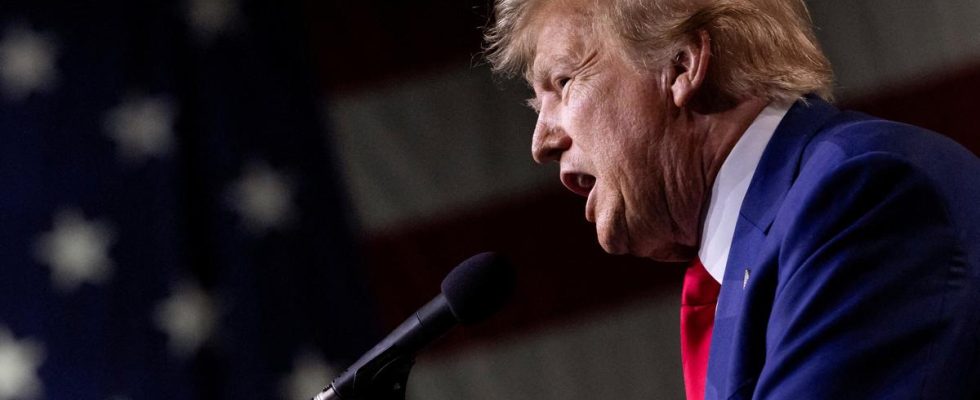” data-script=”https://static.lefigaro.fr/widget-video/short-ttl/video/index.js” >
Accused of having interfered with the result of the 2020 presidential election, Donald Trump had invoked presidential immunity. He announced that he wanted to appeal the decision rendered on Tuesday.
A federal appeals court ruled Tuesday (February 6) that Donald Trump does not have immunity from accusations that he plotted to overturn his 2020 election defeat, bringing the former US president closer to a criminal trial unprecedented. A three-judge panel of the District of Columbia Court of Appeals rejected Donald Trump’s argument that he cannot be prosecuted because the allegations relate to his official responsibilities as president.
The former president has already declared that he wants to appeal this decision, which rejects his attempt to avoid a trial for undermining American democracy and the transmission of power, even as he consolidates his position as favorite for the Republican nomination in the presidential election.
Donald Trump’s lawyers argued that former presidents enjoyed broad legal protections and could not be criminally prosecuted for official acts unless they had first been impeached by the House of Representatives and dismissed from office by the Senate.
Interference in the 2020 elections
During his term in office, Donald Trump was targeted by impeachment proceedings twice by the House of Representatives, but each time, Senate Republicans voted enough to acquit him of the charges against him.
The indictment brought by special counsel Jack Smith accuses Trump of using false claims of election fraud to pressure state lawmakers, Justice Department officials and the vice president of at the time, Mike Pence, in order to thwart the certification of the election results. It is one of four criminal cases facing Donald Trump and one of two allegations of interference in the 2020 election.
Donald Trump has pleaded not guilty to four counts and accused prosecutors of trying to damage his campaign for political reasons. The immunity argument was rejected by District Judge Tanya Chutkan in December, prompting Donald Trump to appeal.
Even if Donald Trump’s argument is not accepted by the courts, the appeal is likely to achieve its goal of delaying the trial scheduled for March 4 and possibly pushing it back until after the November election. The case is on hold while Donald Trump appeals. If Donald Trump wins the election, he could pardon himself or order the Justice Department to close the case.
” data-script=”https://static.lefigaro.fr/widget-video/short-ttl/video/index.js” >

